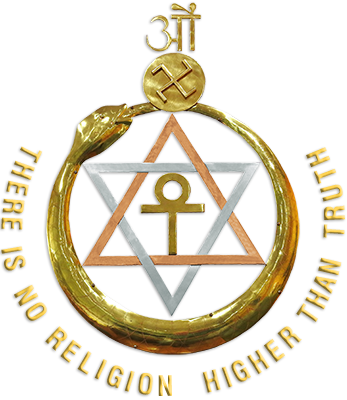Articles & Texts
Resources
Meditation
See Download link above
The Golden Stairs
From the “Book of Discipline”
in the schools of “Dzyan.”
From Collected Writings of H P Blavatsky
Volume XII Page 502-503
1890
The Aryan Press in New York published this second Preliminary Memorandum in an eight-page pamphlet. Part of its text is as follows, leading to The Golden Stairs:
“1. To the earnest Disciple his Teacher takes the place of Father and Mother. For, whereas they gave him his body and its faculties, its life and casual form, the teacher shows him how to develop the inner faculties for the acquisition of the Eternal Wisdom.
“2. To the Disciple each Fellow-Disciple becomes a Brother and Sister, a portion of himself,* for his interests and aspirations are theirs, his welfare interwoven with theirs, his progress helped or hindered by their intelligence, morality, and behavior through the intimacy brought about by their co-discipleship.
* “So shalt thou be in full accord with all that lives; bear love to men as though they were thy brother-pupils, disciples of one Teacher, the sons of one sweet mother.” (vide Fragment III, in “Voice Of The Silence”, page 49.)
“3. A co-disciple or associate cannot backslide or fall out of the line without affecting those who stand firm through the sympathetic tie between themselves and the psychical currents between them and their teacher.
“4. Woe to the deserter, woe also to all who help to bring his soul to the point where desertion first presents itself before his mind’s eye, as the lesser of two evils. Gold in the crucible is he who stands the melting heat of trial, and lets only the dross be burnt out of his heart; accursed by Karmic action will find himself he who throws dross into the melting-pot of discipleship for the debasement of his fellow-pupil. As the members to the body, so are the disciples to each other, and to the Head and Heart which teach and nourish them with the life-stream of Truth.
“5. As the limbs defend the head and heart of the body they belong to, so have the disciples to defend the head and the heart of the body they belong to (in this case theosophy) from injury.
(From the letter of a master.)
. . . . And if the limbs have to defend the head and heart of their body, then why not so. Also, the Disciples their Teachers as representing the SCIENCE of theosophy which contains and includes the ‘head’ of their privilege, the ‘heart’ of their spiritual growth? Saith the scripture:-
“he who wipeth not away the filth with which the parent’s body may have been defiled by an enemy, neither loves the parent nor honours himself. He who defendeth not the persecuted and the helpless, who giveth not of his food to the starving nor draweth water from his well for the thirsty, hath been born too soon in human shape.
(The Golden Stairs)
“Behold the truth before you: a clean life, an open mind, a pure heart, an eager intellect, an unveiled spiritual perception, a brotherliness for one’s co-disciple, a readiness to give and receive advice and instruction, a loyal sense of duty to the Teacher, a willing obedience to the behests of TRUTH, once we have placed our confidence in, and believe that Teacher to be in possession of it; a courageous endurance of personal injustice, a brave declaration of principles, a valiant defence of those who are unjustly attacked, and a constant eye to the ideal of human progression and perfection which the secret science (Gupta-Vidyā) depicts—these are the golden stairs up the steps of which the learner may climb to the Temple of Divine Wisdom.”
Answers To Queries
[EXCERPT—the Laws of Upasans]
From Collected Writings Of H P Blavatsky
Volume VIII Page 294 and Lucifer, Vol. I, No. 4, December, 1887, pp. 325-328
The Rules, however, of chelaship, or discipleship, are there, in many a Sanskrit and Tibetan volume. In Book IV of Kiu-ti, in the chapter on “the Laws of Upasans” (disciples), the qualifications expected in a “regular chela” are
“(1.) Perfect physical health. [This rule I applies only to the “temple chelas,” who must be perfect.—ED (HPB)]
(2.) Absolute mental and physical purity.
(3.) Unselfishness of purpose; universal charity; pity for all animate beings.
(4.) Truthfulness and unswerving faith in the laws of Karma.
(5.) A courage undaunted in the support of truth, even in the face of peril to life.
(6.) An intuitive perception of one’s being the vehicle of the manifested divine Atman (spirit).
(7.) Calm indifference for, but a just appreciation of, everything that constitutes the objective and transitory world.
(8.) Blessings of both parents † [† Or one, if the other is dead.] and their permission to become an Upasana (chela); and
(9.) Celibacy, and freedom from any obligatory duty.”
The two last rules are most strictly enforced. No man convicted of disrespect to his father or mother, or unjust abandonment of his wife, can ever be accepted even as a lay chela.
... ...
“The enemies which rise within the body,
Hard to be overcome—the evil passions—
Should manfully be fought, who conquers these
Is equal to the conqueror of worlds.” (xi, 32.)
—ED (HPB).




